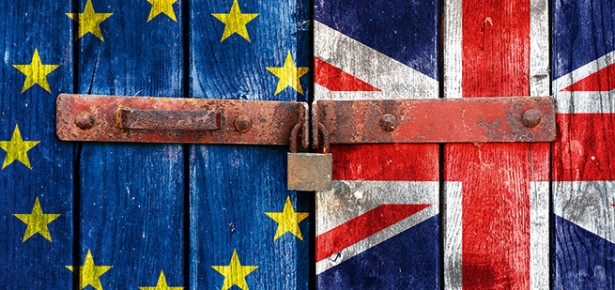
The view from Denmark
As a Dane, I follow the Brexit discussion with both interest and bewilderment. Denmark entered the European Communities in 1973 together with the United Kingdom and Ireland. For many Danes the fate of Denmark in Europe is therefore naturally linked to that of the UK.
Yet, the British EU referendum debate is puzzling. The UK is portrayed as if it were a lonely fighter in Brussels and not working closely with other states. If we are to believe large segments of the British media, the UK has limited influence in the EU. Arguably, the new settlement agreement, negotiated by David Cameron, is just one example of a symbolic victory, which will not change anything in practice.
This is a peculiar interpretation of the UK’s position – at least for a Dane – who has seen a UK successfully shape the EU’s agenda every day since 1973 in close cooperation with Denmark and other European allies.
How the UK won the EU’s agenda
Let’s take a brief look at how the UK became a leader in the EU and a friend of 27 other member states.
In the eurozone, as I have shown in my book, the UK is fighting for the rights of all euro-outsiders, including Sweden, Denmark, Poland and the Czech Republic. There are certainly limits, and the UK cannot stop the eurozone from integrating further, but the UK (together with the countries that have chosen to remain outside the eurozone) have pushed surprisingly far in terms of influencing the economic and monetary union, even down to design of the euro coins and banknotes. The UK’s settlement agreement, that will enter into force if the UK votes to remain, secures the UK and the other euro-outsiders a significant voice in financial sector regulation and more controversially in eurozone matters. It is not a symbolic deal, but an example of the extraordinary negotiation power of the UK.
It is well-known that the UK is a champion in building a single market, removing barriers to free trade in Europe. This is not just Margaret Thatcher’s accomplishment, but a collective achievement. Today, the UK together with digital pioneers such as Finland and Estonia are pushing for a digital single market where consumers and entrepreneurs will not be burdened by administration, protectionism or what they see as out-dated rules.
On what has been coined ‘benefit tourism’, the UK is part of a larger group of states, including the Netherlands, Germany, France and Denmark, suggesting restrictions for EU migrants claiming social benefits. An increasing number of states realise that while the principle of non-discrimination of EU citizens is crucial, national social benefits were created before anyone had thought about the free movement of people. Therefore national welfare rights should be protected. The agenda is developing rapidly and may result in a compromise that both Polish and British citizens can live with.
Also, the British distaste of red tape and bureaucracy has influenced Brussels significantly, contrary to what most people think. The ‘better regulation’ agenda is popular among the European governments. Vice-President of the European Commission Frans Timmermans has launched a less-is-more policy, stopping the Commission’s proposal of new rules unless it can be proved that the EU can act effectively than national or local governments.
Of course, not all of the UK’s visions are equally shared by everyone. Governments, also in Copenhagen, The Hague and Helsinki, often wish that London would be more understanding of other countries’ problems and national sensitivities. Indeed, negotiations can be painstakingly difficult, but every single day British representatives push Europe in a British direction, one compromise after another.
A secret success story?
So why are British voters seldom told about the UK’s active role in the EU? This is partly due to how the EU is presented in British media. Few British voters get a glimpse of the EU’s engine room (see my article on everyday practices in the EU) and are left with images of ‘bureaucracy’ or ‘federal state’ rather than a European diplomatic system where British leaders and representatives shape decisions on everything from free trade agreements to sanctions against Russia.
If a majority of the British voters chose Brexit, the UK would say goodbye to the club where the UK has a leading voice. At a time where British ideas of pragmatic international cooperation are winning many European states over, it would be strange to see the UK leave the EU…. at least for its Danish friends.
Latest Comments
Have your say!